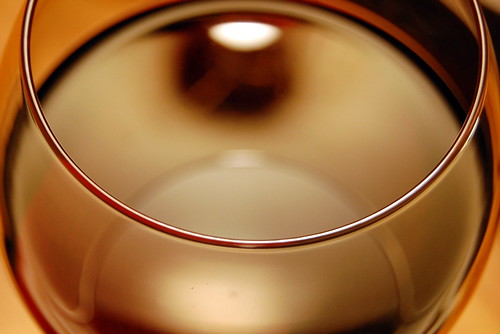I first saw this gentle (and Academy Award winning)
1987 Danish film—developed from a short story written by
Isak Dinesen, the pen name of Karen von Blixon who’s the subject of one of my other favorite films,
Out of Africa—at least 10 years ago. My folks, who’ve had a deep and life-long involvement in discipleship, had seen the film and recommended it to me. (I think they even gave me the VHS copy I own.)
On the surface it’s a simple story of two sisters as they live with their minister father and later take care his tiny flock after he dies in a plain and austere village on the Danish coast. Late in their lives, Babette (who’s fleeing the war in France after the death of her husband and child) joins the sisters, cooking for and working with them as they care for the people in their tiny village. The story builds to these years, because Babette is a woman with a gift of which the sisters are unaware but one that nurtures them and contributes to their healing (and the healing of the community in which they live) in ways which both surprise and awe them. With the film’s themes of service and the relentless life that expresses itself in our gifts, it’s not hard to understand the connection with discipleship and learning to live in and with Jesus. I thought it a beautiful film the first time I saw it, and still do.
I recently ran across it again on television one night whilst my husband was on an out-of-town trip and the kids were tucked away in bed. (It was back-to-back with another subtitled and food-focused film, Ang Lee’s Taiwanese
Eat Drink Man Woman, which was the inspiration for the American
Tortilla Soup, a version that I actually like better in some ways but not in others, but that’s a subject for another post.) This time through
Babette's Feast, I was particularly struck by how well it illustrates how poor our understanding is of each others’ gifts and how they are to be used. Far too often we see gifts as tools to be used for our own gain—whether that be for our personal benefit or well-intentioned agendas of a well-intentioned community (including religious communities). But gifts have their greatest power when they are freed from agendas and allowed to flourish simply where they are—with no other agenda except to help bring Life and Love into the world around them.
I was also struck by how missed opportunities—by choice or as casualties of this broken world—can be beautifully woven into revelations about and overwhelming gifts of the Love and Life of God. I was particularly moved and comforted twice in the film as one character tells another that their gift—which on appearances seemed lost in this world but in retrospect was never lost at all—would be cherished and used in perfection in heaven. The last time is spoken by one of the sisters to Babette:
But this is not the end, Babette. I’m certain it is not. In Paradise, you will be the great artist that God meant you to be. Ah, how you will delight the angels!
The film left me with a strong sense of longing for the world where this takes place. And yet, somewhat paradoxically, I was also left with a renewed sense of God’s intimate, personal and relentless attention and work to heal, comfort and change us and the world—and how our gifts work with him in that.
I’ve touched on only two simple threads in this film. There’s been a
plethora of articles (and a chapter in at least
two books) about both the film and story which delve into the faith and God-talk in this film (which is eighth on the list of
Arts and Faith Top 100 Spiritually Significant Films), so I’ll leave you to those who’ve written much more insightfully and in-depth than I to plum the richness of this film. (If you’re an ambitious chef, you can try
some of the recipes that were created for a stage production of the story and try
these hints for serving up your own feast.)
But then, you could also enjoy the film simply for the beauty and gift it is: an expression of Life and Love.
Note: This entry was originally posted on my other blog, In the Open Space: God & Culture.







